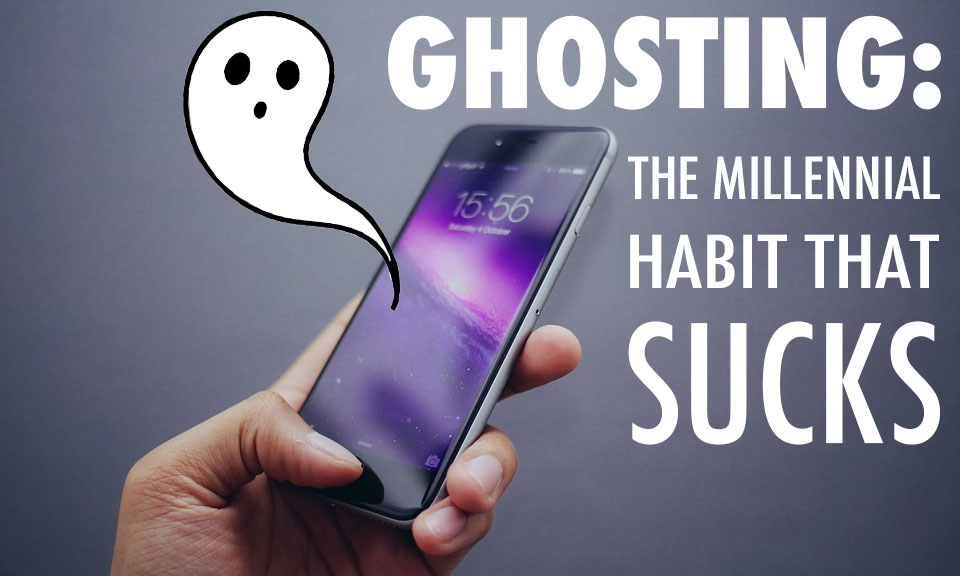Ghosting. What does it mean, how does it happen, and why is it so detrimental to so many people?
The dictionary (well, Dictionary.com) defines ghosting as the practice of suddenly ending all contact with a person without explanation, especially in a romantic relationship. In simple terms, it’s when you think someone likes you and then all of a sudden, they disappear and leave you in the dark.
Personally, I think it is the worst possible way to let someone down. It’s the easy way out and ultimately makes the other person question everything they did to make the ghoster not like them. Although, in certain circumstances, it is the only way to get the memo that someone isn’t interested.
Ghosting is awful, plain and simple; it sucks for the people that are doing the ghosting and it sucks for the people getting ghosted. And the problem with a small campus like Capital is that you probably won’t be able to avoid them either, which just makes it 100 times worse.
I have experienced both.
The most heartbreaking story of me being ghosted occurred during this past spring semester. Me and this guy had been social media flirting (they liked a few old pictures, I liked a few old pictures, etc.) and soon he direct-messaged me. Of course, I was totally pumped because in my head we were already married, but I did my best to act as nonchalantly as possible.
It was going really well. We had hung out a little bit the next day and had shared our favorite music and seemed to have so many things in common. I tried not get my hopes up, but they were already pretty high up there. For the next few days, we had consistent communication. Then after those four days, there was nothing.
I was crushed. I scrolled through our messages and tried to figure out where I screwed up, but I just couldn’t figure it out. He was still viewing my Instagram stories and liking my pictures which just made me more upset. I saw him everywhere on campus and wanted so badly to just walk up to him and question what had happened and why he had done it.
In that moment, I promised myself that I wouldn’t ever do that to anyone else because of how much it had hurt me. I knew 100 percent that I would never want to inflict anyone else with that kind of heartbreak.
Around this same time, I had to ghost someone as well, but out of pure necessity. This is not meant to be a hypocritical ‘I can ghost someone but they can’t ghost me,’ this is meant to show that sometimes a ghost is necessary.
In this circumstance, I had also received a direct message. He seemed pretty cool at first, but after a quick Instagram stalking, I realized that our morals didn’t really line up. I tried to politely let him down, but he just wasn’t having it. The conversation was uncomfortable and forced. The attempt to be mindful of his feelings hadn’t worked so I just stop responding. This eventually led to some choice language (which brings up another article for another time) and is still followed by a kind of uncomfortable vibe when I see him around campus.
Part of me still feels extremely remorseful about doing it, because I know exactly what it’s like to be on the other side, but it had to be done.
Ghosting is far too popular for the effect it leaves on people. Most ghosters are too scared to intentionally hurt someone, so instead they just ignore it and pretend like the problem solved itself, but ghosting can hurt just as much as telling someone directly that their relationship is over.


